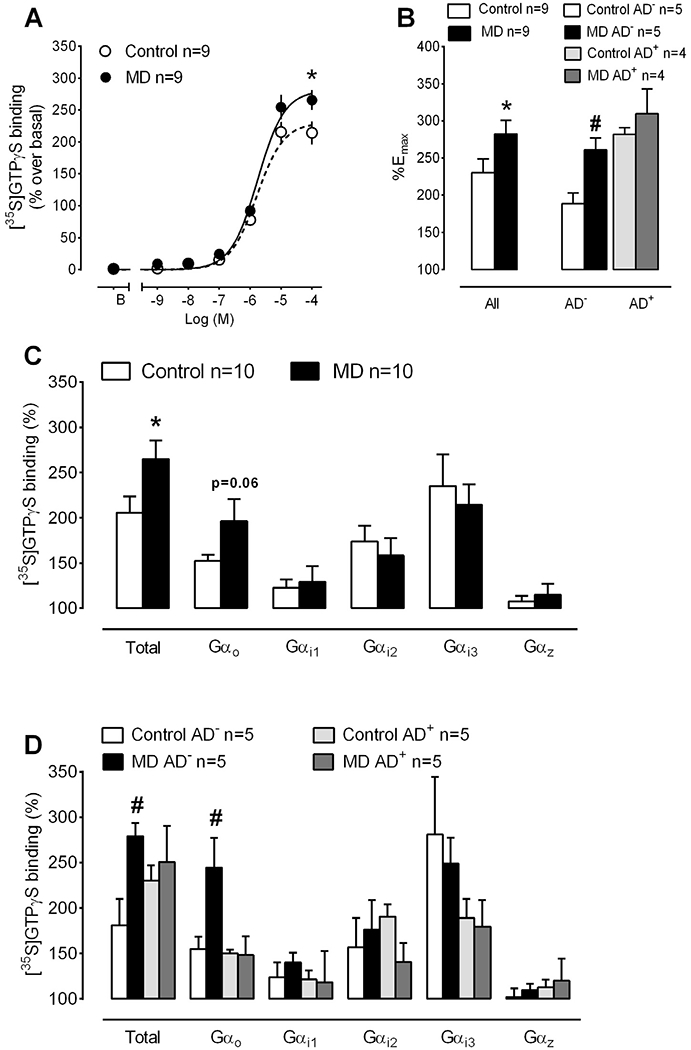Fig. 1.

CB1 receptor-mediated activation of Gi/o proteins in PFC homogenates from MD subjects and matched controls. (A) Average concentration-response curves for the stimulation of [35S]GTPγS binding by the cannabinoid agonist WIN55,212-2 in MD and control cases. The maximal ability of WIN-55,212-2 to stimulate [35S]GTPγS binding was significantly enhanced in the MD group (n = 9 MD and matched control cases; *p < 0.05 vs control group, paired Student’s t-test). (B) Comparison of the maximal effect of WIN55,212-2 (%Emax) in [35S]GTPγS binding assays in MD cases with relation to AD intake. The increased efficacy of the cannabinoid agonist in MD subjects is restricted to the AD-free depressed suicide victims (n = 5 AD-free + 4 AD-treated MD and control cases; #p < 0.05, two-way ANOVA followed by Bonferroni post-hoc test vs control cases).(C)Stimulation of Gαo, Gαi1, Gαi2, Gαi3 and Gαz protein subunits by the cannabinoid agonist WIN55,212-2 (10 μM). The activation of total Gα proteins by the cannabinoid agonist was increased in MD (n = 10 MD and matched control cases; *p < 0.05 vs control group, paired Student’s t-test). (D)Comparison of the effect of WIN55,212-2 to activate Gα subunits in MD cases with relation to AD intake. The increased activation of Gα proteins by WIN55,212-2 in depressed subjects is due to a selective enhancement in the ability of the cannabinoid agonist to stimulate Gαo subunits in AD-free cases (n = 5 AD-free + 5 AD-treated MD and control cases; #p < 0.05, two-way ANOVA followed by Bonferroni post-hoc test vs control cases). Control AD−: matching control of MD AD-free subjects; control AD+ : matching control of MD AD-treated subjects.
